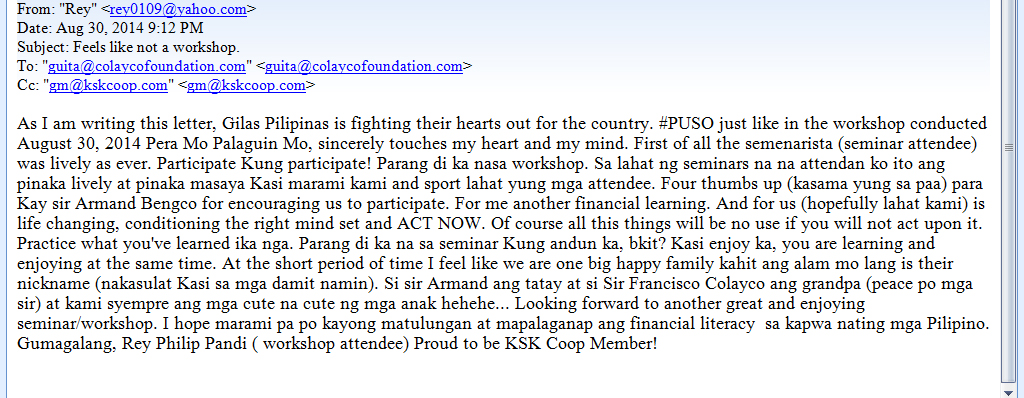Some people have ways of thinking in relation to spending that could lead them into debt. I will be discussing with you some of the spending practices of some people that lead them into always being short of cash and living on credit card or in deep credit card debt. In analyzing these practices, I want to emphasize the principles I have been discussing through the years. Read on and see how you can be more aware so that you avoid the pitfalls.
Bonus – Let’s say that you received a bonus of P10,000. What would you do with it? Most people would not only spend all of it. Apparently, many will even use it as a down-payment for an item, and unfortunately, the installment payments for the item bought is usually more than their budget. Normally, a budget is just enough for your regular expenses. You should not add to your regular expenses without a permanent addition to your regular income. A bonus is not regular income and after receiving it, there will be no more to come in the near future.
If you are making a budget for your regular income and expenses, all the more you must treat a bonus with some analysis and planning. Remember the First Principle is “Pay Yourself First?” I ask you to follow the formula “Income minus Savings equals Expenses.” A bonus is income as well. You must still follow the formula. Set aside 10-20% of the bonus as your savings.
You could also give yourself and your family a little treat but make sure it is something modest and commensurate to your regular income.
Discuss the bonus with your spouse and/or your family. What are your priorities to help get the best value for the windfall. Since the amount is limited, don’t immediately think that you can use it for a new type of expense that could balloon to something more than you bargained for. Rather, maybe it is better to use it to help you in a regular expense or even better, put it all in savings.
The bonus is the only additional income you have. Unless you get a salary increase, you do not have additional money to pay for additional regular installment payments. Never buy an item that will require you to make regular installments that you cannot afford.









